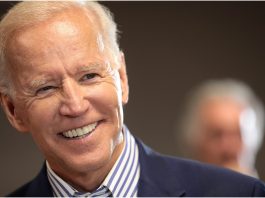What Is a Woman? movie review: We give the new Matt Walsh film 5 of 5 stars.
Movie critics have shunned Matt Walsh’s epic and brilliant documentary “What Is a Woman?” although more than 110 million people have watched it. That’s okay; the country’s elite critics are making themselves irrelevant in a central debate of our times.
We have decided to write a What Is a Woman? movie review that most news sites wouldn’t dare. Walsh pointed out on Twitter that only six movie critics had written reviews on Rotten Tomatoes, and none from major sites. The IMDb page for the movie says, “The reviews for the film were hidden on Letterboxd.” That’s just wrong. It’s also revealing.
Into this zeitgeist comes Walsh, the Daily Wire podcaster and commentator with a deadpan style that is far more effective and harder to refute than flame-throwing.
To some degree, Walsh’s documentary is a statement on censorship. It’s worth noting that the documentary would have reached far fewer eyes if Elon Musk hadn’t purchased Twitter. This is a pattern. In interview after interview, Walsh’s carefully worded, completely legitimate questions eventually cause squirming interview subjects to shut down a conversation they can’t win.
There’s a power shift happening in America, and it started with the concerns of parents at a local level bubbling up to the national stage. The free flow of information is essential.
By trying to redefine (or even eradicate) womanhood, the liberal elites have dramatically overplayed their hands. Remember women’s rights? Who is speaking up for that? Liberals make a critical mistake if they think this debate is limited to the far corners of the right or Kid Rock shooting a commemorative beer can.
“What if my truth is that you no longer exist?” Walsh asks a woman, who says, “I mean if that’s your truth sure, I don’t.”
“But you do because we’re having this conversation,” says Walsh.
“Can you tell me what a cat is?” he asks another person on the streets of San Francisco. A pediatrician objects to Walsh using the word “drugs” to refer to medical treatments given to juveniles after he points out that the drug, Lupron, is also used to chemically castrate sex offenders. She thinks calling drugs “drugs” is harmful.
Sample conversation in Walsh’s film:
“What is a woman?”
“If people feel they’re a woman, they’re a woman.”
“Yes, but what is that?”
“This conversation is over!”
Contrast this with the words of blunt store owner, Don Sucher, who declares that it’s all “common sense.”
“How do I know I’m a man? Because I’ve got a d*ck,” he states.
One of the most powerful segments in the Walsh documentary focused on hospitals performing surgeries on minors and exposing them to hormones for which society lacks research documenting the long-term consequences. Walsh interviews Scott Newgent, who describes the surgical procedures involved in transitioning, even showing the documentarian a mutilated arm which tissue for a penis was harvested from.
Walsh fought initial censorship by Twitter until Musk reversed it and pinned the documentary to the top of his page. The documentary discusses a Canadian father jailed for using the “wrong pronoun” for his daughter and penalized for speaking out against his underage daughter being given hormones to transition without his consent; a Virginia school board that tries to limit debate (until Walsh ingeniously moves into town to qualify); and a Dr. Phil episode that was taken down when the other participants claimed Walsh’s questions caused them “emotional damage.”
To further a new age of censorship, the left has absurdly decided that conservative opinions (and even the “truth”) are actual violence (case in point: Tom Cotton and his New York Times editorial).
But what makes the question “What is a woman?” so incredibly terrifying to some?
Because they can’t answer it.
Their definition is not based on “truth,” as Walsh argues, but rather a distortion of it, Walsh believes. Walsh’s thesis: Their answers are based on feelings and emotion, contradicting reason and science (XX, not XY). It’s the difference between subjective and objective truth. They want us to believe gender is a social construct when they’re the ones constructing it.
“The biological differences between the sexes have long been recognized at the biochemical and cellular levels. Rapid advances in molecular biology have revealed the genetic and molecular bases of a number of sex-based differences in health and human disease, some of which are attributed to sexual genotype—XX in the female and XY in the male,” explains a research article available on the National Library of Medicine. “Every cell has a sex,” says the header.
Walsh twists their logic on his interview subjects (therapists, a Congressman, a pediatrician). For example, they think it’s fine for kids to feel their gender is something else, but kids have such imaginations they believe in Santa Claus. If people can pick their gender because of how they feel then why can’t they pick their race? These are questions Walsh poses.
The film brings one to the inescapable conclusion that gender and sex are the same thing. As the documentary points out, there are men who are more feminine in characteristics or traits than others, and there are girls who are tomboys, but that doesn’t make them something they are not. Sex is not “assigned” by a doctor at birth; it’s determined by biology and God. Men and women are simply not built similarly; just ask the female swimmers who lost to Lia Thomas. Walsh does.
Walsh’s 1.5-hour-long documentary exploring sex and “gender” is a brilliant expose of the insanity of liberal elites. It’s hard not to watch Walsh’s movie and not come away with the reality that a large portion of the United States has completely lost its mind.
One baffled look or smile on the Maasai African tribal members’ faces (visited by Walsh, who asked them about the roles of men and women) proves that point. “We have never seen things like this,” the Maasai warrior says, apparently thinking it’s all nuts. Perhaps the entire “gender” debate is the luxury of a society with too much time on its hands.
Contrast their simple truths to the byzantine logic of the professor Walsh visits who babbles on about “constructs” and is “really uncomfortable” with the language “getting to the truth,” which he considers “deeply transphobic.”
“If I probe about what the truth is?” Walsh says to the professor, adding that “we should begin figuring out what the reality is.”
At one point, on the Dr. Phil show (in an episode later censored), Walsh is accused of being extreme and points out that he’s just articulating a position that society held since the beginning of time. Until now, in America. How and when did that become extreme? Why should we fear making these points? Why has America become a country where you fear exercising freedom of speech (as witnessed by a Thomas teammate who was interviewed in shadows for the documentary, although she’s since allowed Walsh to use her name)?
His expose of the forebears of the “gender identity” movement – including Dr. Alfred C. Kinsey, who “wanted to rid society of Judeo-Christian values when it came to sexuality” and believed “children are sexual from birth” – is very disturbing. Kinsey based his data on convicted sex offenders, and performed “horrific sexual experiments on children, some under the age of 1,” according to Walsh, but he remains celebrated by Hollywood and academia, and his work is the foundation for current teachings in schools.
John Money, a psychologist and university professor, who coined the terms gender identity and gender roles, according to Walsh, believed babies were “gender neutral at birth.” He experimented on a pair of twins, according to Walsh. One ended up committing suicide.
“During the twin’s psychiatric visits with Money, and as part of his research, (Bruce) Reimer and his twin brother were directed to inspect one another’s genitals and engage in behavior resembling sexual intercourse,” according to an article on the Arizona State University website.
Walsh’s understated style – he doesn’t need to throw flames to make a point – emphasizes his interview subjects’ absurdities. There is a point in each interview where they each suddenly realize that they’ve been had. When they can no longer answer his (legitimate) questions without looking like fools, they end the interviews.
In an effort to “understand the truth,” Walsh traverses the country, setting up interviews with therapists and doctors.
In one of the most ingenious segments, he heads into the bowels of a “women’s march.” If anyone should be able to answer the question “What is a woman,” it’s women wearing pink vagina hats. Instead, they bumble over the answer and chant that he’s an “as*hole.” If you can’t answer the question, call people names to shut down the debate.
We wish the film had explored the silence of the feminists more, perhaps tracking down Gloria Steinem. If you don’t have women, you don’t have women’s rights, so where are they? They fought tooth-and-nail to give women sports equality, so why are they not standing behind Riley Gaines?
Walsh is like a more understated and sophisticated Borat, only he’s skewering the left, and they’re the ones in costume (note on “furries” – there’s a handful of them in our kids’ schools. Just ask them.)
Walsh’s documentary could be called, “What is the truth?”
After watching Walsh’s movie, all but the most indoctrinated will plainly see the answer, and the most indoctrinated will have to pause.
What is a woman? It’s like that old U.S. Supreme Court definition of obscenity: You know it when you see it (or her).
What Is a Woman? Movie Review: Watch the Full Matt Walsh Film
Every parent should watch this https://t.co/pIp6UP6vq8
— Elon Musk (@elonmusk) June 2, 2023
Table of Contents













